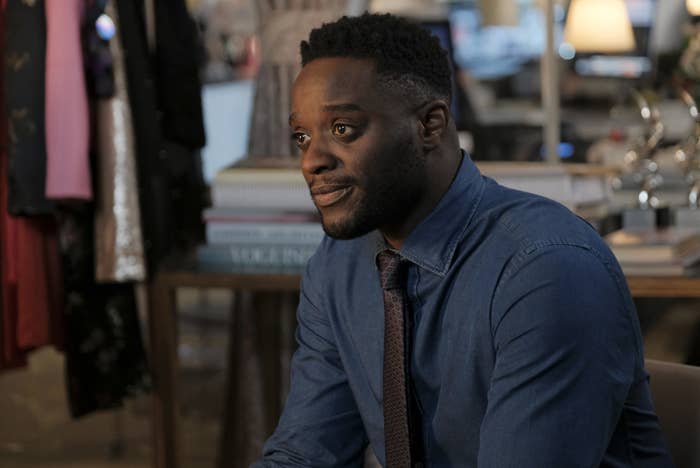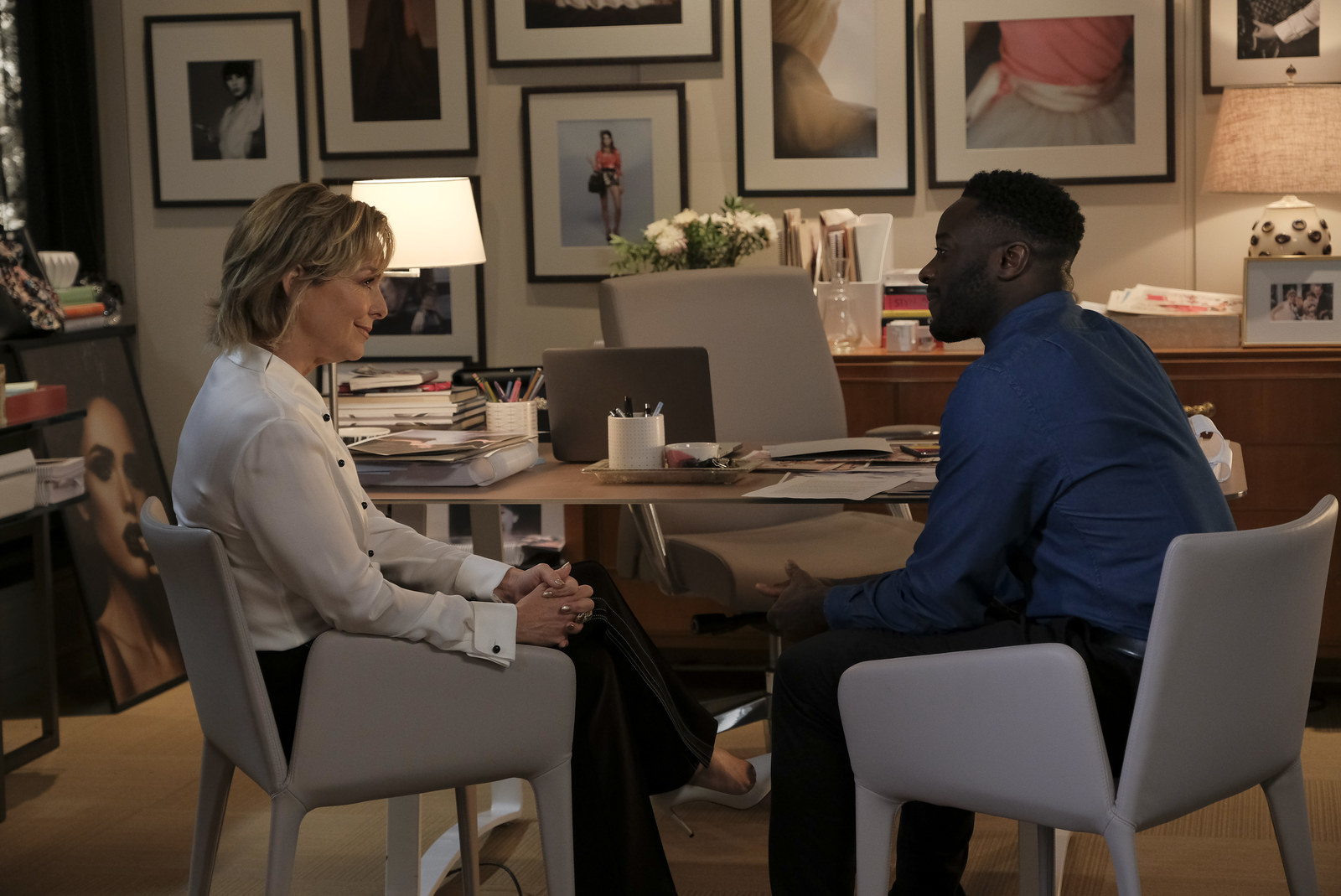
Freeform’s The Bold Type has long been a show that’s tackled social, political, and cultural issues head on through the lens of its three main characters: Jane (Katie Stevens), Kat (Aisha Dee), and Sutton (Meghann Fahy).
For the past two seasons, these fictional twentysomethings living in New York City and working at a women’s magazine have faced trials and tribulations around race, immigration laws, and even gun violence.
And now in Season 3, which premiered on April 9, the show is continuing with this tradition by addressing consent between men and women, and what it looks like when two people walk away from the same sexual experience feeling very differently.
On Tuesday night’s episode, titled “Stroke of Genius,” Scarlet magazine’s Alex (Matt Ward) confronts his own ideas about sex, consent, and accountability when he realizes he’s the inspiration behind his college friend’s viral, fictional story about a man who pushes her to have sex. The story loosely resembles the viral New Yorker short story from 2017, “Cat Person.”
As one of the only, if not the only, straight men who works at Scarlet, Alex is tasked with not only navigating the outcome of this experience, but he’s given the assignment to write about it for the website.
“What I’m trying to do with the show is dive into conversations that are uncomfortable and show people mucking their way through it and they’re not necessarily getting it right the first time,” The Bold Type showrunner Amanda Lasher told BuzzFeed News.
“And to really walk through the experience of having somebody hold you accountable for something that you didn’t see at the time and examine that, and consider how do you process and make amends for that?”
Lasher said there was a lot of debate and discussion in the writers room about how to handle this specific storyline, explaining that everyone “felt passionately” about depicting Alex coming to terms with his role in a “gray area” sexual encounter and how he can come out on the other side of it.
“There are experiences I had when I was in my twenties where I wasn’t being overtly pressured but I did more than I was fully comfortable with because sometimes I just felt like it was easier, and I know other women had this experience as well,” Lasher said.
In the episode, Alex finds out he’s really the person at the center of his former college friend’s story when they go out to lunch. After a bit of struggling, he wraps his head around how the two of them had different experiences within the same moment and how they thought about their sexual encounter differently.
Alex then approaches Sutton, who he hooked up with in the first season, and asked if she felt any kind of pressure when they were together. Even though Sutton says she didn’t feel any pressure with Alex, this sparks a conversation between the two of them in which she explains she knows what it’s like to “feel stuck in a dorm room or some weird Brooklyn apartment, and stopping just because you want to can sometimes be harder than it seems.”
“These are really difficult conversations to have and I wanted to have them through a character like Alex,” Lasher said. “Who we all think of as a good guy and who is a good guy, but that doesn’t mean he hasn’t made mistakes in his past.”

The character continues to have conversations with other women and colleagues of his, including Jane, Kat, and even the editor-in-chief, Jacqueline Carlyle (Melora Hardin), who encourages Alex to publish an article revealing that he’s the real-life person behind the viral story, confronting his own reckoning head-on.
“I wanted to see somebody wrestle with that decision and then have the courage to do it,” Lasher said. “And not everybody is going to be happy with it. It may not be enough, it may not be the right way, but it was Alex’s way.”
Once he publishes his article, Alex is met with negative comments and unhappy readers. He does, however, receive a text from his college friend thanking him for being “an ally.”
Lasher said she thinks there are “very few examples” of how men have successfully handled their own public reckonings, accusations, and allegations in regards to sexual harassment, misconduct, and assault, but that “there is room for people to look back on their behavior and genuinely grow from it.”
“As much as we’d love for there to be a simple clean answer to these to some of these situations, there’s not,” she said.
“But for Alex, we felt like the way he processed it was true to him in that he owned up to his part of this and he felt that he was able to process it ... and I hope that it’s an opportunity for people to have conversations and take ownership of their past mistakes.”
